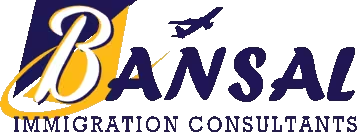Trades Recognition Australia
Trades Recognition Australia (TRA) provides skills assessments for people with trade or associate‑professional skills gained in Australia or overseas who intend to migrate or obtain occupational recognition in Australia.
Overview
What TRA does
Trades Recognition Australia assesses whether your trade or technical skills meet Australian standards for migration and licensing. TRA offers multiple assessment programs (Provisional Skills Assessment, Job Ready Program, Migration Skills Assessment, Offshore Skills Assessment Program, Temporary Skill Shortage (TSS) Skills Assessment and Migration Points Advice) and issues outcomes used by the Department of Home Affairs and other agencies.
Choosing the right program
Which TRA program applies depends on your occupation, where you studied, your passport/country of residence and the visa you are seeking. For example, the Job Ready Program (JRP) is for eligible international graduates with Australian trade/associate qualifications; the Offshore Skills Assessment Program (OSAP) is for applicants outside Australia seeking migration skills assessment; and the TSS Skills Assessment supports Temporary Skill Shortage visa applications.
Key assessment programs (brief)
- Provisional Skills Assessment (PSA): A preliminary step required before entering the Job Ready Program for some international graduates.
- Job Ready Program (JRP): A supervised program for eligible international trade graduates in Australia to demonstrate competence and employment readiness.
- Migration Skills Assessment (MSA): For applicants seeking permanent skilled migration—evaluates skills against occupational standards for migration purposes.
- Offshore Skills Assessment Program (OSAP): For applicants offshore seeking a skills assessment for migration or recognition.
- TSS Skills Assessment Program: Designed to support Temporary Skill Shortage (Subclass 482) visa applications where a skills assessment is required.
- Migration Points Advice (MPA): Provides an assessment of how many migration points a particular qualification may attract (where requested by Home Affairs).
What TRA assesses
TRA assessments consider the relevant Australian Qualifications Framework (AQF) level for the occupation and evidence of competency in practical skills and knowledge. Assessments commonly include review of qualifications, employment history, job duties, and any required licensing information. TRA may reference the Australian Qualifications by Occupation guidance to determine the expected AQF level.
Documents and evidence you need
Prepare certified copies (and accredited English translations where applicable) of: passport/ID, qualifications and academic transcripts, detailed employment references describing duties and hours, evidence of registration or licensing (if applicable), and any other program‑specific forms. TRA publishes program‑specific evidence requirements and forms—check the relevant guidelines before applying.
How to apply (overview)
- Use the TRA Program Pathfinder to identify the correct program for your circumstances.
- Check the Australian Qualifications by Occupation to confirm required AQF level.
- Prepare and certify all required documents and complete any program‑specific forms (e.g., PSA or JRP forms).
- Lodge your application through TRA’s online portal and pay the applicable fee.
- Respond promptly to any TRA requests for further information or verifications.
Processing, outcomes and review
Processing times vary by program and application completeness. TRA issues an outcome (suitable / not suitable / provisional) and provides details of any further steps (e.g., required JRP participation or evidence gaps). TRA has an Assessment Review Policy — if you disagree with an outcome you can apply for review under the published procedures and timeframes.
Licensing and employment
Some occupations assessed by TRA also require state/territory licensing or registration to work in Australia (e.g., certain construction trades). A positive TRA outcome is an assessment of skills; you must check and meet any separate licensing or regulatory requirements for the occupation and jurisdiction where you plan to work.
Practical tips and important notes
- Use TRA’s RTO Finder if you need to locate a Registered Training Organisation for bridging or training.
- Remove personal identifiers (e.g., tax file numbers) from documents where advised.
- Keep certified originals and scanned copies; ensure translations are by an accredited translator.
- Engage a registered migration agent only if you need migration advice—TRA and Home Affairs do not provide personalised migration counselling.
Request Call Back
Get Expert Help
Melbourne VIC 3000
Adelaide SA 5000
